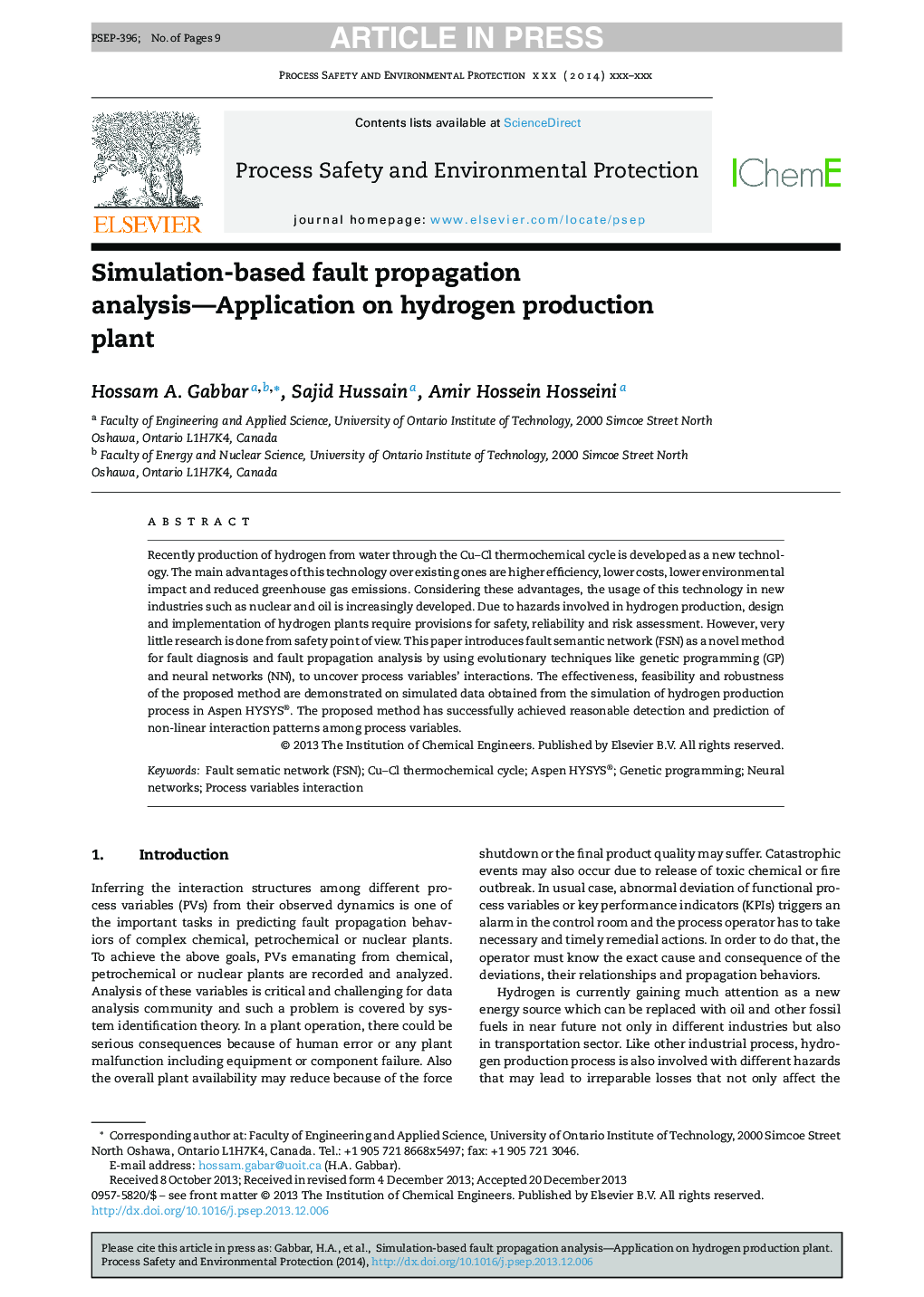| Article ID | Journal | Published Year | Pages | File Type |
|---|---|---|---|---|
| 10373916 | Process Safety and Environmental Protection | 2014 | 9 Pages |
Abstract
Recently production of hydrogen from water through the Cu-Cl thermochemical cycle is developed as a new technology. The main advantages of this technology over existing ones are higher efficiency, lower costs, lower environmental impact and reduced greenhouse gas emissions. Considering these advantages, the usage of this technology in new industries such as nuclear and oil is increasingly developed. Due to hazards involved in hydrogen production, design and implementation of hydrogen plants require provisions for safety, reliability and risk assessment. However, very little research is done from safety point of view. This paper introduces fault semantic network (FSN) as a novel method for fault diagnosis and fault propagation analysis by using evolutionary techniques like genetic programming (GP) and neural networks (NN), to uncover process variables' interactions. The effectiveness, feasibility and robustness of the proposed method are demonstrated on simulated data obtained from the simulation of hydrogen production process in Aspen HYSYS®. The proposed method has successfully achieved reasonable detection and prediction of non-linear interaction patterns among process variables.
Keywords
Related Topics
Physical Sciences and Engineering
Chemical Engineering
Chemical Health and Safety
Authors
Hossam A. Gabbar, Sajid Hussain, Amir Hossein Hosseini,
